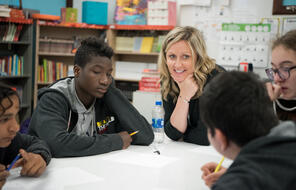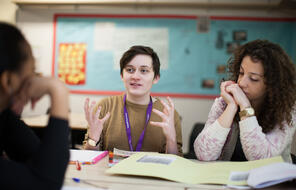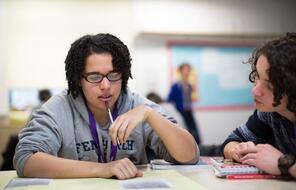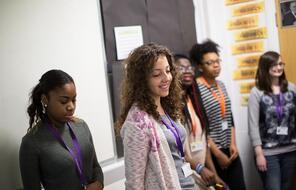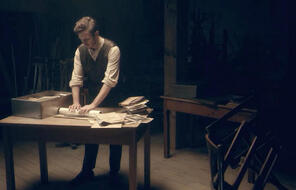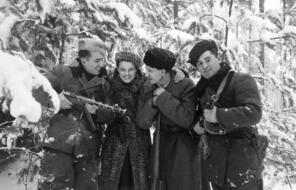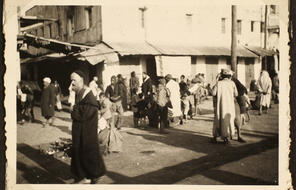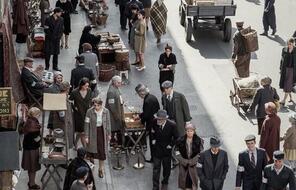“A Jewish Adolescent Ponders her Identity (1939)” by Marie Abravanel
At a Glance
Language
English — USSubject
- History
- Social Studies
- The Holocaust
- Resistance
- Culture & Identity
In 1938, the Italian fascist government that controlled Libya passed antisemitic race laws. Jewish children could no longer attend Italian schools, intermarriages between “Aryans” and “non-Aryans” were outlawed, Jews were expelled from any government positions and from many other professions, and “Jewish race” was stamped in Jewish passports. The following reflection was written by a teenage girl named Marie Abravanel. In 1939, she lived in the city of Tripoli, Libya, and she was a student at a local Jewish school. As she experienced the rising antisemitism in the world around her, she confronted the disparity between her connection to Judaism and the messages about being Jewish that she was receiving from the broader society.
March 6, 1939: “Being Jewish”
In the past, I rarely thought about the fact that I am Jewish. Reminders would come to me in the course of our holiday festivities, and I considered myself a being just like all the others, blessed with the common capacities of man, sensitive to the pains and joys that are part of life, with the only difference being the religion of my ancestors. I must have fooled myself: to this day, belonging to this faith is a problem; [recent] events have refuted my former convictions and have aroused in me sorrows that only a Jew is called upon to feel. I am Jewish; consequently, in the eyes of some, I am marked by the stamp of shame, unworthy of fulfilling any function in society or of nourishing any lofty aspirations. By repeatedly hearing these affronts, I have ended up feeling uncomfortable everywhere. In the street, at shows, all these eyes that look at me, do they not reproach me for crimes, do they not seem to banish me from the room, do they not condemn everything about me, down to the way I dress, the way I sit? I feel as if I must no longer go out, as if I must hide at home to examine my thoughts and behavior. What faults have I committed, because I am less privileged than others? My exam comes to only one conclusion: I am Jewish. Is being so a crime? . . . Following my initial despondency comes a new drive and hope: I look everyone in the eyes, sure of my innocence, of my right to life . . . I am no longer afraid, nor am I ashamed of being Jewish, and I glory in it as others do in their riches or their jobs. Being part of this dispersed flock, suffering everywhere and at all times, hunted for infinite reasons across time and place, is an honor that in my eyes renews my personal dignity and that of my brothers. My despondency has vanished, and hope in justice, rooted within us for millennia, is reborn in me, despite all the pain that I may endure. 1
- 1Stein, Sarah Abrevaya, and Aomar Boum. “Rapport trimestriel, Marie Abravanel, ‘Etre juive,’” March 6, 1939, lybie-I.E.2, Tripoli, 1939, Alliance Israélite Universelle Archives. Translated from French by Rebecca Glasberg.” Essay in Wartime North Africa: A Documentary History, 1934–1950. Stanford, CA: Stanford University Press, 2022, 38.
How to Cite This Reading
Facing History & Ourselves, "“A Jewish Adolescent Ponders her Identity (1939)” by Marie Abravanel," last updated June 30, 2023.
This reading contains text not authored by Facing History & Ourselves. See footnotes for source information.

